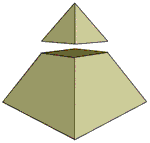Nebraska College Preparatory Academy

Nebraska College Preparatory Academy: Senior Capstone Projects
Date of this Version
2018
Document Type
Article
Citation
Senior Capstone Project Poster, Nebraska College Preparatory Academy/Grand Island Senior High School 2018. University of Nebraska-Lincoln
Abstract
In science, there is an equilibrium between advancements in knowledge, ethics, and reason. Equilibrium is when two contrary sides are in balance and, typically, once one side becomes disproportionate, there will be a disturbance. In the novel Frankenstein, Mary Shelley portrays how going beyond the limits of science can cause a disturbance to human nature. One of the main characters, Victor Frankenstein, fabricated a living creature out of unliving parts. Victor is displeased with the result, leaving the Creature neglected and destined to feel loathing toward his creator. The consequences of seeking glory brought about torture. Aside from providing entertainment, Frankenstein is still relevant today because of how medical advancements are rapidly finding answers to prolonging life exponentially and resuscitating long after death. The question comes to mind, how far will scientists and society push the limits of human nature and life span?
● Shelley did not explicitly explain the process of creating the Creature, but that doesn’t stop science and society today from finding answers. ● Who decides what is ethical when it comes to testing on animals or humans? ○ Possibility of causing harm to those being experimented on due to errors ● How responsible can people be when choosing to live longer, and where will their life end? ○ Giving power to the general public to be experimented on may not be beneficial either, due to lack of forethought on consequences. ● Resuscitation in the short term exists with cardiac arrest patients ○ Research shows that with certain stable blood and cell conditions, the body can remain dead for a longer amount of time and still be resuscitated.
Included in
Bilingual, Multilingual, and Multicultural Education Commons, Literature in English, British Isles Commons, Other Education Commons, Research Methods in Life Sciences Commons, Secondary Education Commons


Comments
Copyright © 2018 Viangri Sontay L.